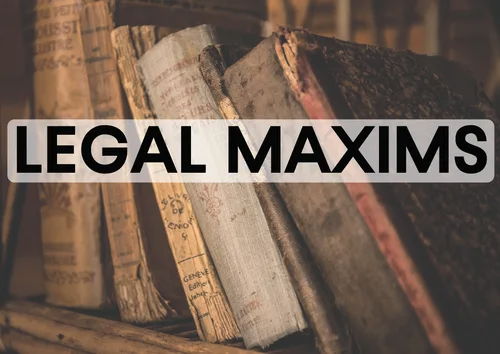For Canadians and Americans whose rights or freedoms have been infringed or denied
Provision for remedy.
Disclaimer
I personally do not advocate any process or procedure contained in any of my Blogs. Information presented here is not intended to provide legal or lawful advice, nor medical advice, diagnosis, treatment, cure, or prevent any disease. Views expressed are for educational purposes only.
Maxims of law
He who affirms must prove.
He who is silent appears to consent.
In default of the law, the maxim rules.
Ignorance of the law excuses no one; for all are presumed to know those things to which all consent.
CANADA – REMEDY
In the CONSTITUTION ACT, 1982, there is provision for remedy S24 (1) if your rights or freedoms as guaranteed by PART I, Canadian Charter of Rights and Freedoms S33 (1), have been infringed or denied as follows:
Constitution Act, 1982 Part I Canadian Charter of Rights and Freedoms
Enforcement of guaranteed rights and freedoms
24 (1) Anyone whose rights or freedoms, as guaranteed by this Charter, have been infringed or denied may apply to a court of competent jurisdiction to obtain such remedy as the court considers appropriate and just in the circumstances. https://laws-lois.justice.gc.ca/eng/Const/page-12.html
Exception where express declaration
33 (1) Parliament or the legislature of a province may expressly declare in an Act of Parliament or of the legislature, as the case may be, that the Act or a provision thereof shall operate notwithstanding a provision included in section 2 or sections 7 to 15 of this Charter. https://laws-lois.justice.gc.ca/eng/Const/page-12.html
S1 The Canadian Charter of Rights and Freedoms guarantees the rights and freedoms set out in it subject only to such reasonable limits prescribed by law as can be demonstrably justified in a free and democratic society.
S1 Unless an individual was forcibly injected with anything, how can they demonstrably prove their rights or freedoms were infringed and/or denied?
Primacy of Constitution of Canada
52 (1) The Constitution of Canada is the supreme law of Canada, and any law that is inconsistent with the provisions of the Constitution is, to the extent of the inconsistency, of no force or effect. https://laws-lois.justice.gc.ca/eng/Const/page-13.html#docCont
The Constitution Acts, 1867 to 1982
Full document https://laws-lois.justice.gc.ca/eng/Const/FullText.html
USA – REMEDY
Civil Rights Act of 1866
CHAP. XXXI An Act to protect all Persons in the United States in their Civil Rights, and furnish the Means of their Vindication.
https://tile.loc.gov/storage-services/service/ll/llsl/llsl-c39/llsl-c39.pdf
Constitution of the United States
Article VI
This Constitution, and the Laws of the United States which shall be made in Pursuance thereof; and all Treaties made, or which shall be made, under the Authority of the United States, shall be the supreme Law of the Land; and the Judges in every State shall be bound thereby, any Thing in the Constitution or Laws of any State to the Contrary notwithstanding. https://constitution.congress.gov/constitution/
Argue only what is in the Constitution
In both Canada and the USA, the CONSTITUTION is the supreme law of the land, so in court, argue only what is in the Constitution. To argue code, regulations or any other act has no value.
Court rules
Before going to court, it is wise to seriously familiarize yourself with court rules, processes and procedures in the correct jurisdiction.
Other countries
Perhaps look up ‘remedy’ in your country’s Constitution or other legislation.
Please inform anyone who might be interested. TY!
Without prejudice and without recourse
Doreen Agostino
Our Greater Destiny Blog
constitution

